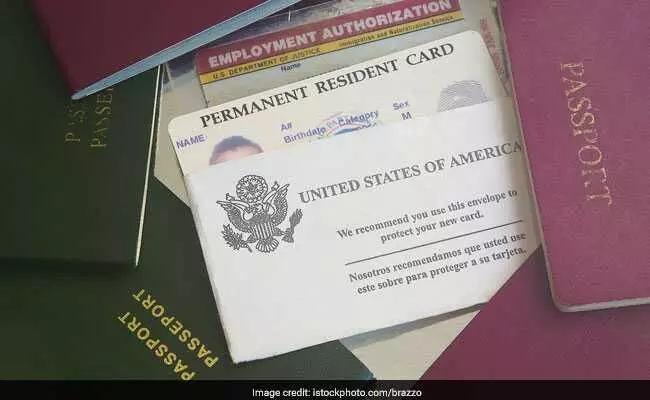US dreams: 7L Indians awaiting Green Cards; expats send SOS to MEA
In an explosive letter to Minister for External Affairs S Jaishankar, Saurabh asked the government to issue an advisory for students and skilled workers. The viral letter has notched 400-plus shares
By Newsmeter Network
American dream of over seven lakh Indian expats is in jeopardy after the US drags its feet on issuing Green Cards.
While the waiting time to receive a permanent residence visa for an Indian born applying today is 90 years, the period for a Chinese born is just 9 years. Visa is immediately available to individuals born in all other countries, said a Twitter user Saurabh who goes by the social media handle @bringiton2023.
In an explosive letter to Minister for External Affairs S Jaishankar, Saurabh asked the government to issue an advisory for students and skilled workers. The viral letter has notched 400-plus shares
"As the eligibility criteria for the above visas are not based on merit but an individual's country of birth. The existing legislation provides preferential treatment to individuals from smaller countries and promotes the segregation of Indians. It is currently estimated that over 2 lakh Indians will die before they receive their permanent residence in the United States. Around 80,000 children are expected to age out before their parents receive permanent residence and will have to self-deport back to India despite being raised in the United States," he wrote.
Excerpts of the Letter
I would like to bring to your notice a long-standing problem of Indian citizens persisting in a decade-long backlog for obtaining permanent residence in the United States and highlight the legislative environment causing humanitarian concerns surrounding this issue.
The United States employment-based immigrant visa category (permanent residence/green card) has an arbitrary issuance cap of 7% for every country. A limited number of visas are issued under this category every year. It disproportionately affects immigrants from large countries like India.
The core problem is centered on the fact that a large number of Indian students consider the United States as a preferred destination for high-school studies. After graduation, most students opt for optional practical training and move up to use the H1-B non-immigrant employment visa to continue working in the United States.
The H1-B visa is advertised as a dual-intent visa and encourages the beneficiaries to keep working for their employers for 6 years provided their permanent residence application is pending. It is to be noted that as India produces more prospective students and high-skilled workers compared to the rest of the world, the F-1 student visa and the H1-B employment visa are inherently designed to not have a country-of-birth cap similar to the immigrant visa explained above. Because of this discrepancy, most students and direct H1-B applicants are caught on the wrong foot when they advance in their careers and eventually end up queuing up the permanent residence backlog. While Indians continue to wait in the backlog queue, applicants from all other countries get to cut to the front of the queue.
Addressing a few humanitarian concerns, Saurabh said: "Applicants cannot work for employers outside of their employer on record. Applicants cannot freely change their employers without restarting the entire permanent residence process. Applicants can accept promotions only as long as their job duties don't change. Applicants can not start their own companies or institutions. Applicants face travel restrictions under their visa conditions."
Scenario
If applicants happen to lose their job, the existing visa program only provides 60 day grace period to stay in the United States following which applicants are forced to self-deport back to India along with their families. More adversely, in the event of the death of an applicant, their family becomes immediately out of status and is forced to self-deport without any grace period.
Recently there have been concerns around the status of children of H1-B holders who arrived in the United States on dependent visas. The current legislation only allows children to be dependents until the age of 21. As a result, once these children turn 21, they are forced to self-deport back to their country of origin.
Employment-based wait-listed petitions, deaths in backlog, aging out, and years to process backlog, September 2021
Request for travel advisories
Saurabh requested the minister for external affairs to take up the matter with the United States administration. "Additionally, it is important for students and high-skilled workers traveling to the United States to be aware of this ongoing situation so they don't inadvertently get trapped in the same. For the protection, betterment, and well-being of our fellow students and high-skilled workers, I humbly request you to issue a travel advisory on humanitarian grounds for travel to the United States" he said.
What Saurabh advises
Prospective students should only travel on an F-1 student visa to the United States if their sole purpose is to return to India after completing their studies.
Workers traveling on an L-1 or H1-B employment visa, should not extend their stay beyond necessary and should avoid renewal of H1-B visa. Indians currently residing in the United States on a non-immigrant visa should strongly consider returning to India if and when circumstances permit.